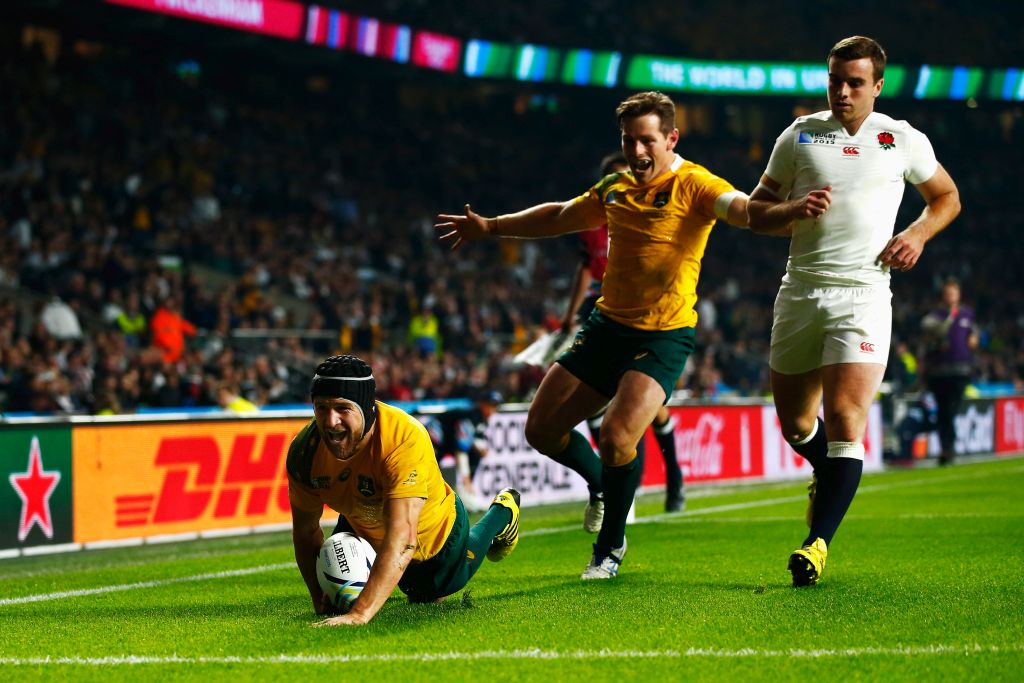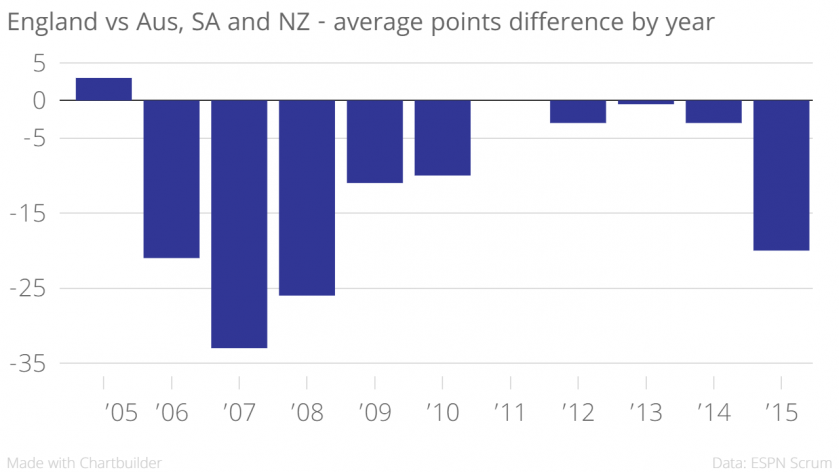Rugby World Cup 2015 semi-finals: Is the southern hemisphere increasing its superiority over the northern hemisphere?

London plays host to the Rugby World Cup semi-finals this weekend but for the first time in the competition’s history no teams from the northern hemisphere are represented in the final four.
New Zealand, South Africa, Argentina and Australia all registered wins over Six Nations sides by at least 20 points – although Scotland did push the latter all the way in the quarter-finals.
The swashbuckling skills on show from the south have begged the question: is the gap between southern hemisphere and northern hemisphere teams growing bigger than ever?
Losing habit
Since rugby union turned professional in 1995, England, France, Ireland and Wales – the only teams to have won the Six Nations – have lost 76 per cent of their games against Australia, New Zealand and South Africa – the traditional southern hemisphere powerhouses.
Collectively the Six Nations' best have played 242, lost 184, drawn seven and won 51 against the Wallabies, All Blacks and Springboks.

France, England, Ireland, Wales v New Zealand, Australia and South Africa since 1995
The southern hemisphere’s superiority is nothing new – and the data suggests that they are starting to assert it on a more regular basis.
Read more: Eight reasons why the All Blacks will win the World Cup
In the professional era only once have the Six Nations winners ever won more games than they’ve drawn or lost against the southern hemisphere trio in a calendar year – in 2001 when they registered five wins out of nine.
Furthermore, since 2005 they have never won more than a third of games against those same sides.
In last five years, Europe’s best teams have won just 16.4 per cent of their games against the southern hemisphere’s best.

Tighter margin
Yet if the northern hemisphere’s results are not showing obvious signs of improvement, there is hope to be taken from the score-lines in those games against the three winners of the Rugby Championship or Tri-Nations.
It’s been 14 years since the median score-line of such match-ups fell in favour of Six Nations sides (in 2001 the average points differential was +1 in their favour), but in recent years they have come mightily close to repeating the feat.
Ahead of this World Cup, top northern hemisphere sides had lost by an average of 5.5 points in the last five years, compared to an average 13.5 deficit in the five years before that.

Red Rose wilting?
So, was the indignity suffered by England in becoming the first World Cup team to crash out at the group stage indicative of a decreasing competitiveness against southern hemisphere sides?
Read more: James Haskell – I've dealt with World Cup disappointment
Australia’s 33-12 humiliation of Stuart Lancaster’s side has triggered a national debate about the head coach’s position and much hand-wringing about England’s conservative instincts, yet there had been signs of progress before the tournament.
In Stuart Lancaster’s three years as coach before the World Cup, England’s average deficit against the southern hemisphere’s big three was three, 0.5 and three in 2012, 2013 and 2014 respectively.
In the years before he arrived? England lost by an average points deficit of 10, 11, 26, 33 and 21 points respectively to the same teams.
